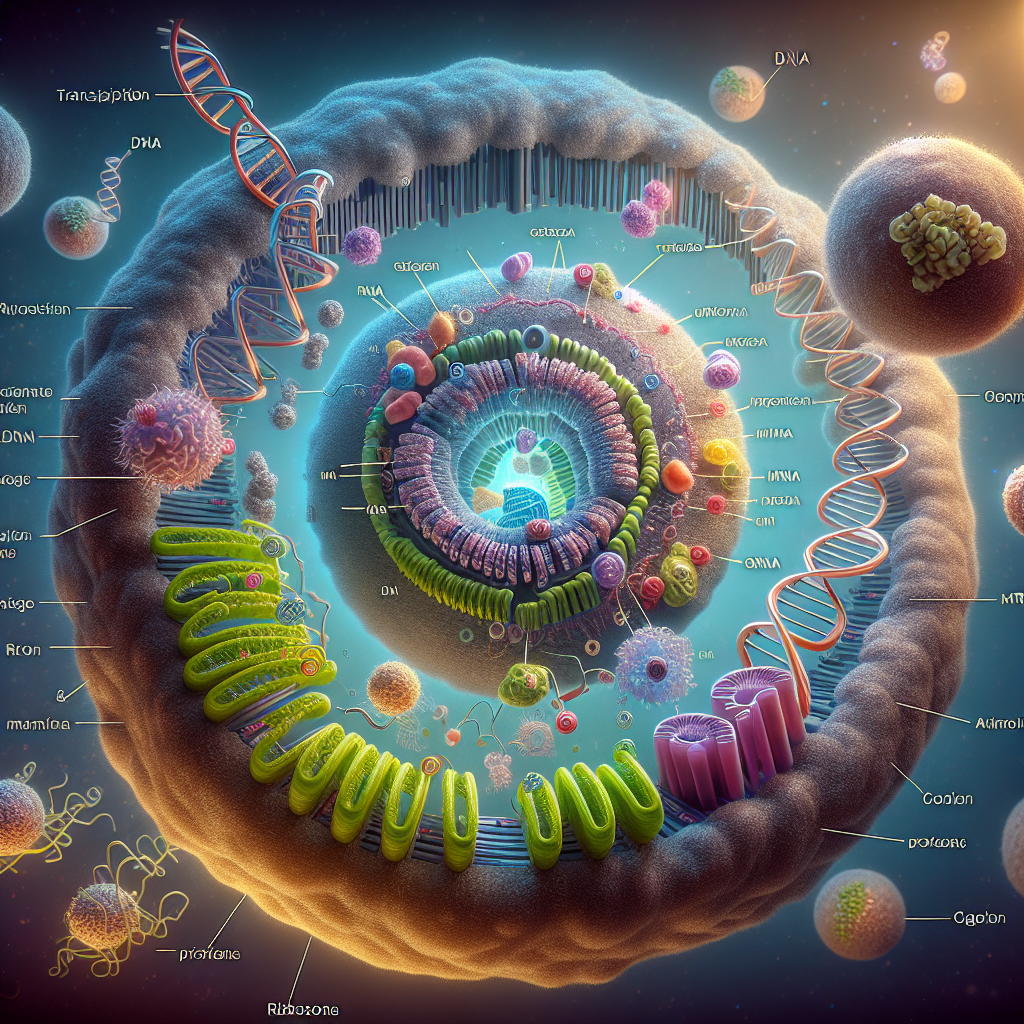
Gene expression is the biological process by which the information encoded in a gene (a segment of DNA) is used to synthesize functional products, such as proteins or RNA. This process is how genetic instructions are translated into the molecular machinery and functions of the body. It occurs in two main stages:
1. Transcription:
• DNA is copied into messenger RNA (mRNA) in the cell nucleus.
• The mRNA serves as a “blueprint” for protein synthesis.
2. Translation:
• The mRNA is transported to ribosomes in the cytoplasm, where it is read and translated into a specific protein.
Gene expression allows cells to adapt and respond to their environment by controlling which proteins are produced, how much, and when.
Does Your Body Produce Its Own Proteins?
Your body produces its own proteins through the process of protein synthesis. These proteins are essential for virtually every function in the body, from building tissues to regulating processes like metabolism, immunity, and cell repair.
How Does the Body Produce Proteins?
Protein production involves the following steps:
1. DNA Provides Instructions:
• Genes in DNA act as templates for creating mRNA.
2. mRNA Transcription:
• Enzymes read the DNA and create an mRNA strand that carries the genetic code out of the nucleus.
3. Translation:
• Ribosomes read the mRNA and assemble a chain of amino acids in the correct sequence to form a protein.
• This is guided by transfer RNA (tRNA), which brings the appropriate amino acids.
4. Protein Folding:
• Once synthesized, the amino acid chain folds into a specific three-dimensional shape, allowing the protein to perform its function.
Proteins Produced by the Body and Their Functions
Your body produces thousands of proteins, each with unique roles. Here are the key types and examples:
1. Structural Proteins
• Examples: Collagen, keratin, elastin.
• Function: Provide support and strength to tissues like skin, hair, nails, bones, and connective tissues.
2. Enzymatic Proteins
• Examples: Amylase, lactase, DNA polymerase.
• Function: Catalyze chemical reactions, such as breaking down food (digestion) or replicating DNA.
3. Transport Proteins
• Examples: Hemoglobin, albumin.
• Function: Carry substances like oxygen, nutrients, or hormones through the bloodstream or within cells.
4. Hormonal Proteins
• Examples: Insulin, glucagon.
• Function: Regulate physiological processes like blood sugar levels and metabolism.
5. Immune Proteins
• Examples: Antibodies (immunoglobulins).
• Function: Defend the body against pathogens like bacteria, viruses, and toxins.
6. Contractile Proteins
• Examples: Actin, myosin.
• Function: Enable muscle contraction and movement.
7. Receptor Proteins
• Examples: Insulin receptors, serotonin receptors.
• Function: Bind to specific molecules (e.g., hormones, neurotransmitters) to trigger cellular responses.
8. Regulatory Proteins
• Examples: Transcription factors.
• Function: Control gene expression and ensure the right proteins are produced at the right time.
Key Points About Protein Synthesis
1. Amino Acids are Essential:
• The body synthesizes proteins using 20 amino acids, some of which are essential and must come from the diet (e.g., lysine, methionine).
2. Continuous Process:
• Protein synthesis happens constantly to replace old proteins, repair tissues, and meet metabolic demands.
3. Liver’s Role:
• The liver produces vital proteins like albumin and clotting factors that maintain blood pressure and prevent bleeding.
4. Dynamic Regulation:
• Protein production adjusts based on body needs (e.g., producing more antibodies during infections).
Holistic Ways to Support Protein Production
1. Eat High-Quality Proteins:
• Include both animal-based (eggs, fish, poultry) and plant-based (legumes, quinoa, tofu) proteins to provide essential amino acids.
2. Support Gene Expression:
• Include foods rich in vitamins (B vitamins, vitamin D) and minerals (zinc, magnesium) that are critical for gene transcription and protein synthesis.
3. Hydration:
• Water is necessary for proper cellular function, including protein synthesis.
4. Exercise Regularly:
• Resistance training and physical activity stimulate protein synthesis in muscles.
5. Reduce Stress:
• Chronic stress can disrupt gene expression and protein production. Practice stress-reducing activities like yoga or meditation.
By producing its own proteins, the body sustains life, repairs itself, and adapts to changing needs. Proper nutrition and holistic practices ensure this process runs efficiently.
Relevant topic:

Leave a Reply